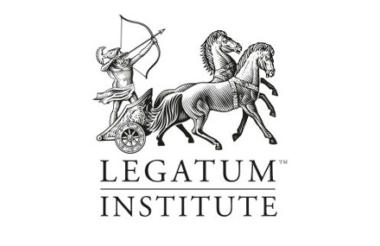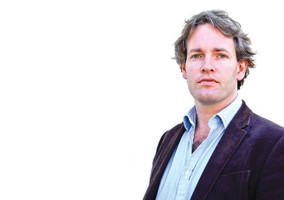The Charity Commission has told the Legatum Institute Foundation that publishing a report about Brexit breached the regulator's guidance on political impartiality.
The Commission ordered Legatum - a pro-free trade think tank charity - to remove its report, Brexit Inflection Point, from its website. It said the report "crossed a clear line".
The Commission opened a regulatory compliance case into Legatum after receiving complaints last year. The findings of that case were published today.
The Commission has issued formal regulatory advice about maintaining independence and neutrality. It will also continue to monitor Legatum Institute.
David Holdsworth, chief operating officer at the Charity Commission, said: “Our case found that the Legatum Institute Foundation breached regulation with the publication of its Brexit Inflection Point report.
“Charities with educational purposes have a valuable role to play in public debates, but they must act responsibly. On such a highly political issue it is especially important that trustees can clearly demonstrate they are operating in line with our guidance to inform the public in a balanced and evidence-based way.
“With this report, the trustees failed to meet the required standards of balance and neutrality.”
Legatum’s response
Legatum agreed to remove the report from its website but in a statement sent to media organisations, inlcuding Civil Society News, it said it was concerned by the request. The Commission told the charity to remove the report on 10 May and the charity waited until late afternoon on 31 May.
Alan McCormick, chair of the charity, initially said: “We are pleased that the Commission has concluded its review of the Legatum Institute. As a board, the trustees take very seriously the institute’s responsibility to educate the general public about how individuals, communities and nations can create the pathways from poverty to prosperity.
“Over the past five months we have worked closely with the Commission, pro-actively reporting relevant information and answering all questions posed to us. We are pleased to see the official recognition on the part of the Commission that the institute operates independently and that we have systems in place which are designed to ensure balance and neutrality in our research and educational work.
“Whilst we understand and will fulfil the Commission’s request to remove the Brexit Inflection Report from our website, the Legatum Institute stands by its view that free trade and free enterprise have done more to lift people out of poverty than any other system. This is not a ‘political’ position but a position informed by empirical evidence and the experience of nations over the centuries – it is supported by a huge body of evidence and research.
"I am therefore concerned by the request to remove the report from our website because it “may be” seen by some as political, and think this should concern all those who wish to see the public engaging with the ideas that can move people and nations from poverty to prosperity.”
This morning the charity updated position and its statement on its website no longer references its "concern" about the Commission's and instead said: “We acknowledge the Commission’s conclusion that the Brexit Inflection report crossed a line – from the Institute’s perspective, this was wholly unintentional. In addition, we understand, and will fulfil, the Commission’s request to remove the report from our website.
“By closing the case, the Commission has affirmed the high standards of the Legatum Institute and cleared the way for it to get on with its mission.”
The report
The Charity Commission said that if found the charity has a “wide-ranging programme” and that its Brexit work has now been “refocused to global trade more generally, following changes in personnel”.
In 2016 Legatum set up a working group called the Special Trade Commission to look at the implications of the UK leaving the EU and produced the report, which aimed to review the barriers to the UK establishing its own trade agenda.
But the Brexit report said: “The STC aims to present a roadmap for the many trade negotiations which the UK will need to undertake now. It seeks to re-focus the public discussion on Brexit to a positive conversation on opportunities, rather than challenges, while presenting empirical evidence of the dangers of not following an expansive trade negotiating path.”
The Commission said that while it was acceptable for the charity was able to conduct research in this area it should be clear that there were other potential outcomes and be balanced.
“Taken as a whole the report may be seen as promoting a political view directed towards securing a particular negotiating position for the aim of a particular final outcome, and recommending specific government action that reflects this,” the Commission said.
“Whilst we considered that the trustees do recognise the need for balance and neutrality, they crossed a clear line with this publication.”
Charity structure
The Commission’s report said: “Although the charity has a relationship with the Legatum Group, from which it receives funding, and some individuals connected to the Legatum Group serve on the charity’s board of trustees, it was substantially independent of the group.”
It said it was satisfied that the charity operates “independently” and that trustees were “aware of the need to retain balance and neutrality”.
The charity is based in London and describes itself as “an international think tank and educational charity”. It is part of a “global community of organisations founded and supported by Legatum Foundation”.
The Legatum Institute’s chair, Alan McCormick, is also managing director of the Legatum Group – a private global investment firm.
The charity has seven trustees, including its chief executive Philippa Stroud.
The Legatum Institute had an income of £4.4m for the financial year to December 2016 – the latest available accounts on the Commission’s website.
Related articles











